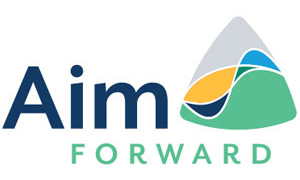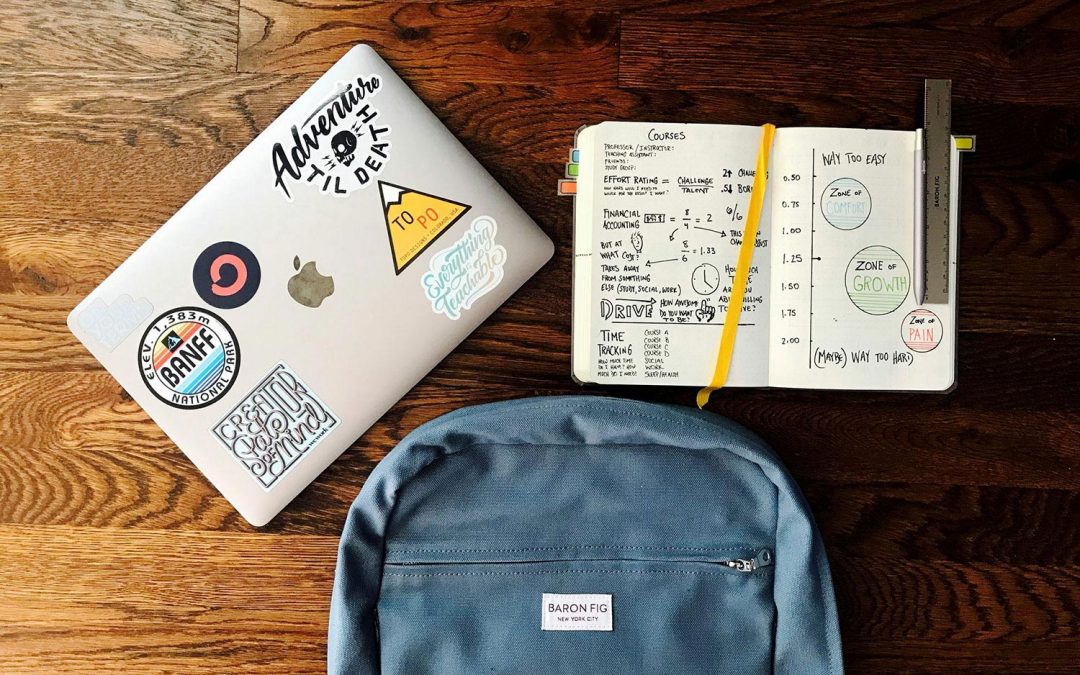How children learn is a complex process. If you want to support your child, it’s important to understand the different methods and styles of learning. Every child is an individual and will process and store information in different ways. This is especially relevant if your child has (or you suspect they have) a neurodivergence like ADHD, autism, dyslexia or dyspraxia. We’ve gathered some key facts and practical tips for you, on how children learn, and how you can help support your child in their learning.
Theories of learning
There is a theory of learning that has been around since at least the time of Aristotle. It breaks how we learn down into three styles:
- Visual learning: learning through what we see
- Auditory learning: learning through what we hear
- Kinaesthetic learning: learning through doing
Previously, students have been categorised into one of these three styles. We now understand that retaining information is more effective when combining these styles. For example rather than just reading a textbook, it can benefit your child to read while also listening to it being read aloud.
Some helpful tips to implement are:
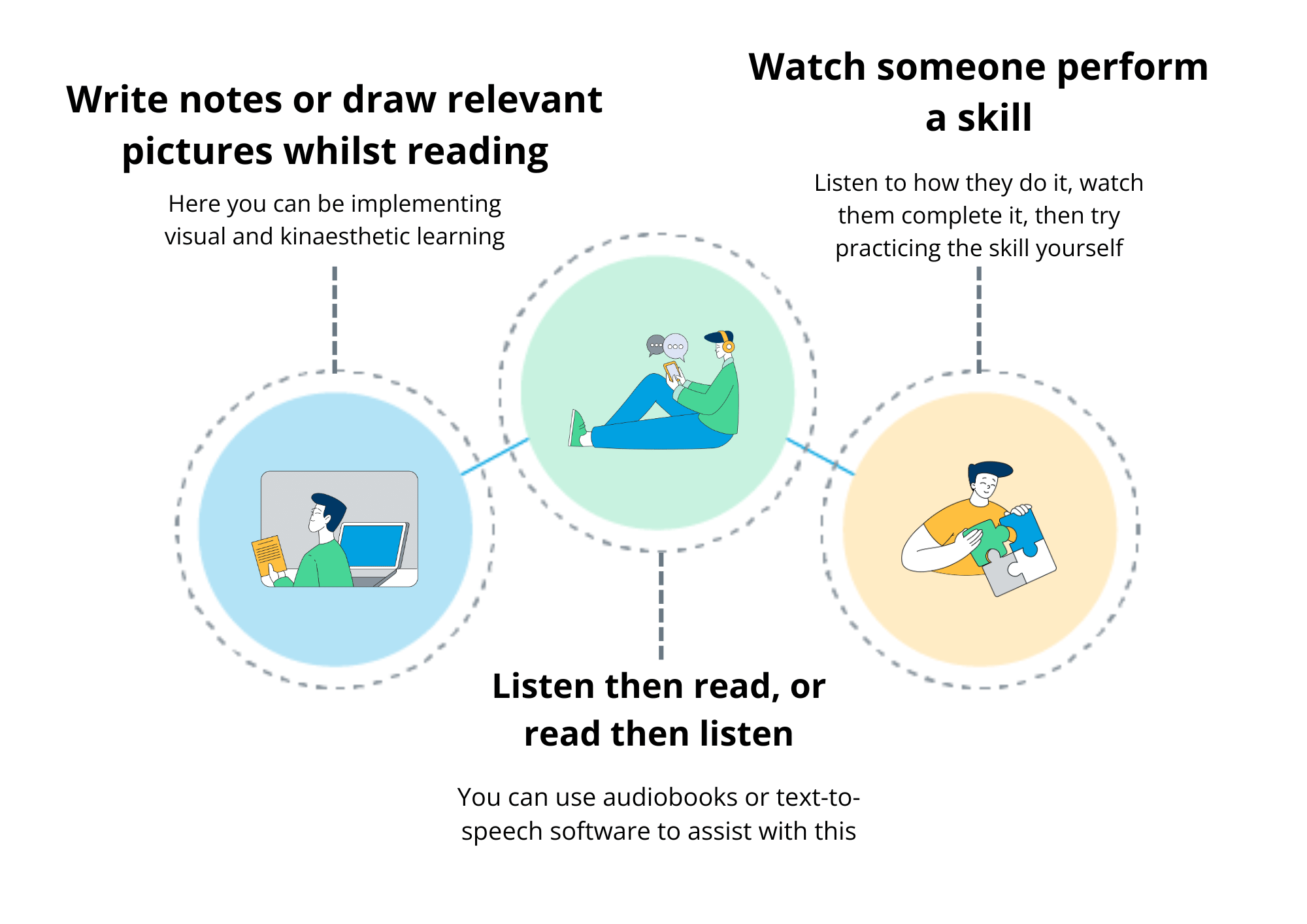
Unconscious and conscious learning
Another theory of learning is unconscious and conscious learning.
Unconscious learning
Some learning happens without us needing to think about it. From a very early age we watch, listen and copy other people around us. We absorb knowledge and skills through this unconscious process.
Conscious learning
Conscious learning happens when we are engaged with our learning. When we are exposed to new information or skills, we think about how this new information links to, explains or adds to what we already know. This conscious learning is usually what we think of when we hear the term “learning,” and it is recognised as the most effective way to gain understanding, retention and recall of information.
In psychology these areas are generally referred to in relation to System 1 and System 2 processing.
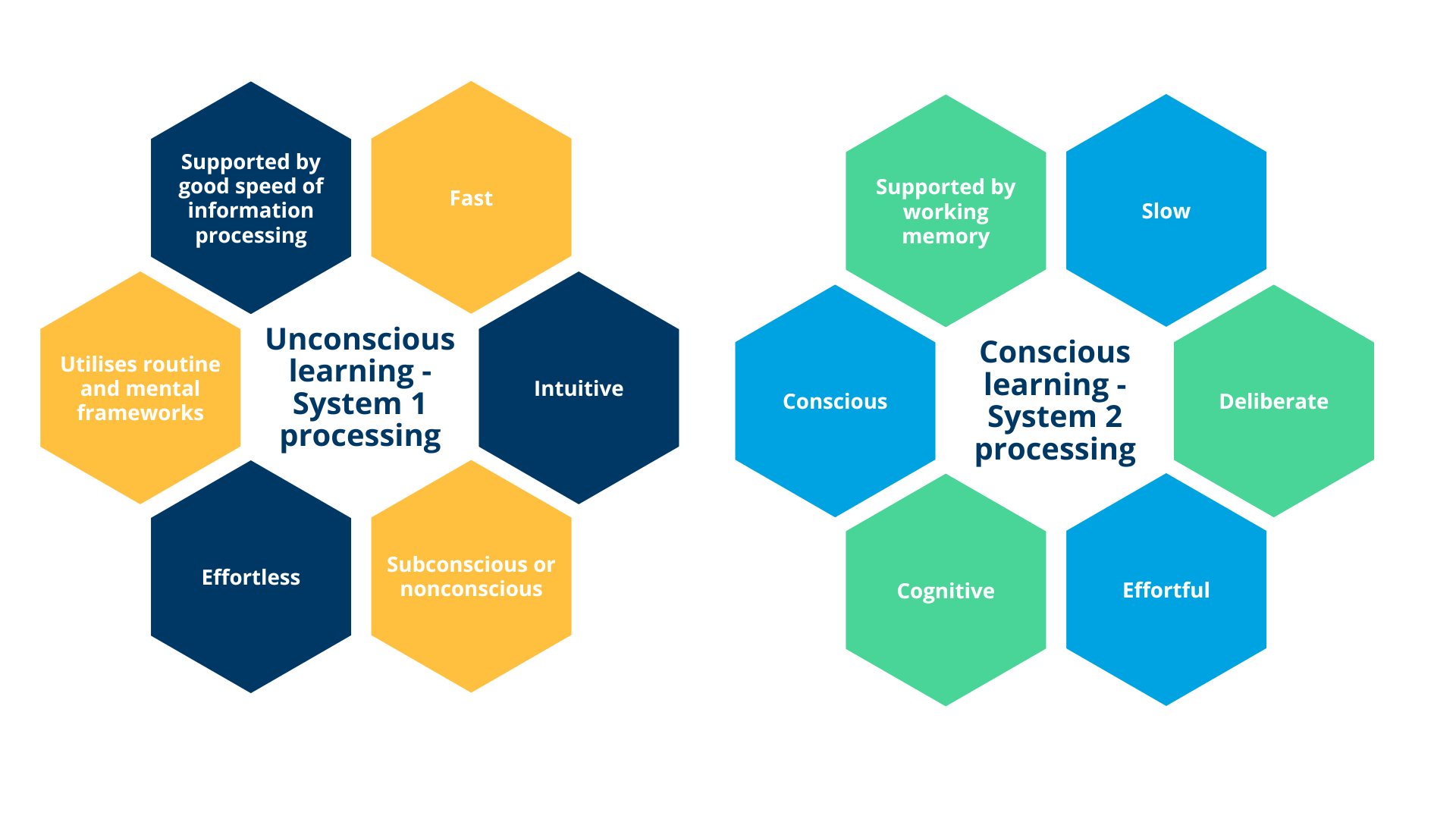
Conscious learning can be the most effective method for your child to learn. However, it does require the most effort. Effortful learning can help children feel productive, but it can also be demotivating because it feels like hard work. This is especially true if:
- your child is not interested in what they are learning
- they are not in control of what we are learning
- they have trouble with a more structured learning approach
When we think about how children learn, realising that they also learn subconsciously is key. There are ways to incorporate less structured learning that can be beneficial. This subconscious learning might include:
- Immersing them in the subject they are learning
- Reading books that aren’t on the syllabus
- Watching or listening to YouTube videos or podcasts
For more information on this topic, you can read Daniel Kahneman’s book Thinking, Fast and Slow where he unpacks the way we learn and make choices.
Top tip: If your child is finding conscious learning overwhelming, try to plan and organise learning so they feel more in control. Mind mapping is a really useful tool to support this, providing a simple, visual overview of what needs to be done. This can help them feel more motivated and engaged.
Psychology and executive functioning
Psychology and executive functioning play a significant role in how children learn. Thinking about the more complex processes triggered in your child’s brain when they try to learn can help you understand how they learn, as well as the challenges they may experience.
If your child has a diagnosis of a specific learning difficulty (SpLD) like dyslexia, you may notice the below areas can be sources of great strength or difficulty for them:
- Speed of information processing – How quickly the brain processes information your child sees or hears. This can look like how quickly they can write thoughts down onto paper and link what they’ve written to what they already know.
- Working memory – How your child holds information they see, hear and experience in their short-term memory. For your child to retain new information, it has to move from working memory to long-term memory.
- Attention – Your child’s ability to concentrate, focus on one thing, and multitask(concentrating on more than one thing at a time).
- Perceptual reasoning – Your child’s ability to plan, prioritise and organise tasks.
- Inhibition – Your child might struggle with impulse control or emotional regulation.
- Cognitive flexibility – How your child adapts their thinking and behaviour based on environments, situations or new information.
To learn effectively, your child needs to be able to pay attention to what they are seeing or listening to, block out distractions, and hold information in their short-term memories while they process it. Being able to adapt how they think about things about new information is also very beneficial. For independent learning outside of school or college, planning, prioritising and organising work is also an important aspect of how children learn.
If your child struggles with independent learning or executive functions, planning strategies and different ways for them to learn can help them lean into their strengths and reduce the impact of their areas of weakness.
It is also worth noting that your child’s executive functions do not fully mature until they reach their mid to late teens and early to mid-20s. Your child may not always struggle in these areas, but they are likely to need extra support as they progress through their GCSEs, A-levels and higher education.
Here are some of the approaches we recommend you try with your child:
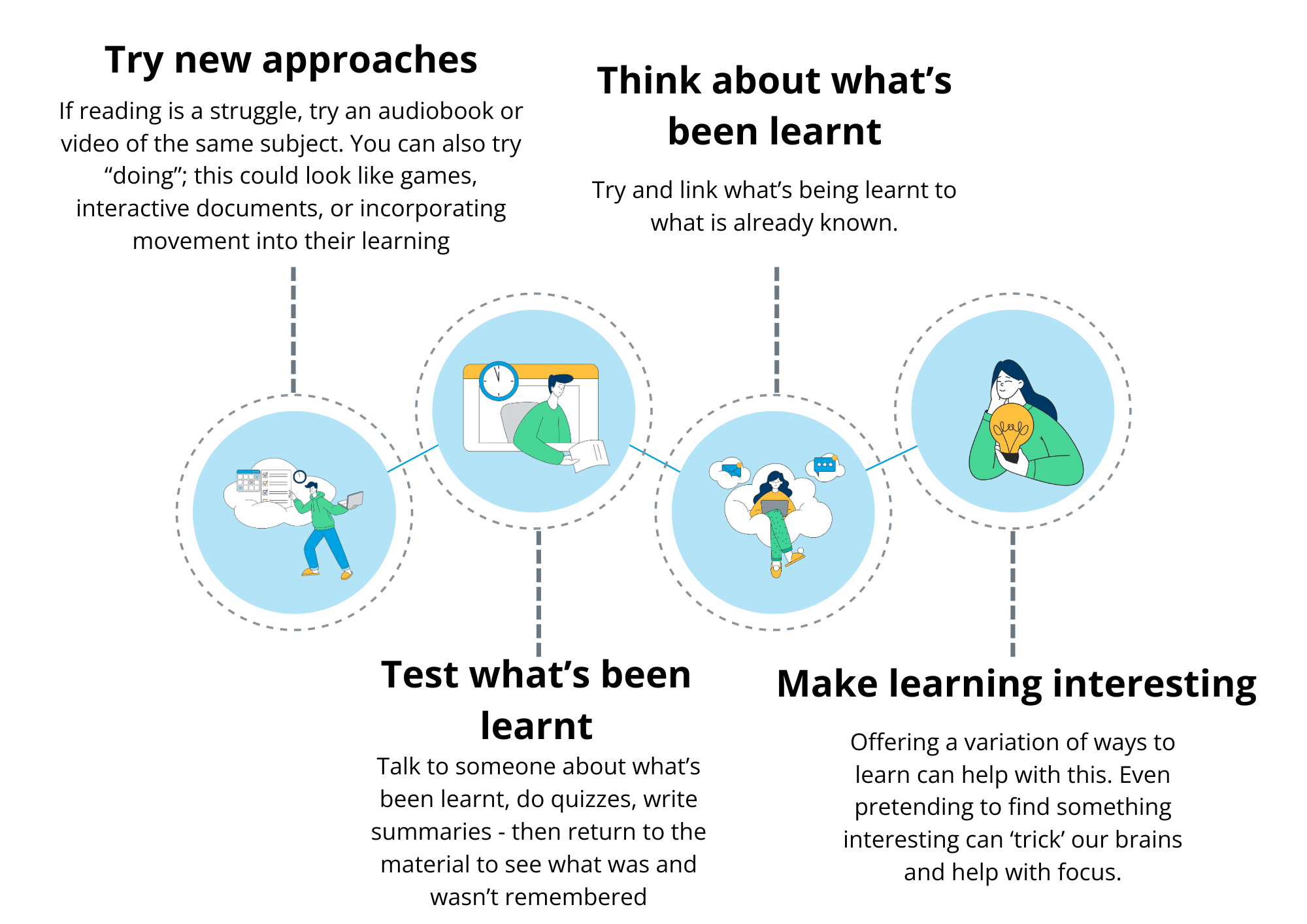
For more information about how executive functions work and how you can help your child improve them, check out this TED talk by Sabine Doebel.
Explore personalised support for your child
If you’d like more personalised support, we provide bespoke needs assessments for children aged 14+. This can help you identify different ways you can support your child to excel in their studies.
A needs assessment is an informal meeting with our experienced neurodiversity assessor and your child, which you are encouraged to attend. Together we will explore your child’s strengths, weaknesses and the impact of any barriers they may be facing as a result of their neurodivergence or mental health condition. We will co-create strategies to overcome these barriers. We may recommend a blend of assistive technology, software, apps and reasonable adjustments that could be put in place for their independent study.
The needs assessment is followed by a bespoke report which explores any difficulties your child may be facing in skills like reading. We’ll work with you to create strategies to overcome these challenges in independent study.
To learn more about our needs assessment and how we can support you at Aim Forward, contact our dedicated support team today.
For the latest information, tips and tools on neurodiversity and mental health, sign up for our newsletter here.
We are also offering a free webinar to help empower neurodivergent students through their exams and how parents can help. If you’ve got a child going through their GCSEs, AS or A Levels, sign up below!
